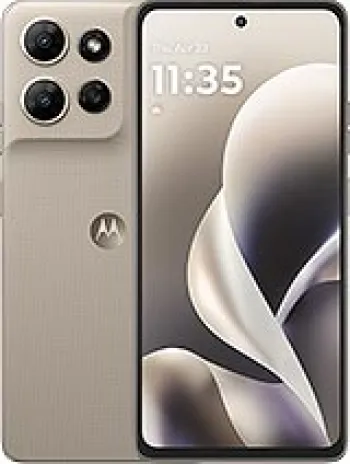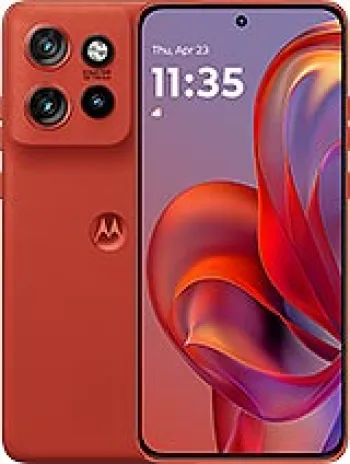
Device Overview
The Motorola CUPE, released in December 2010, marked the era when feature phones were undergoing transformative enhancements. Serving as a notable device in Motorola's lineup, it underscored simplicity and utility, offering users basic smartphone features without the complexity. Despite being discontinued, it remains a notable mention in the transition phase leading to modern smartphones.
Design and Build Quality
Motorola designed the CUPE with practicality in mind. The body dimensions of 107.8 x 53 x 14.4 mm made it compact and easily pocketable. At 115 grams, the weight was balanced, providing a solid feel without being cumbersome. The choice of black added an elegant touch, appealing to users who preferred a classic aesthetic. The Mini-SIM slot kept it standard, aligning with the prevalent SIM size during its release.
Display Features
The CUPE featured a 2.4-inch TFT display capable of showcasing 256K colors. The screen had a resolution of 240 x 320 pixels, resulting in a pixel density of approximately 167 ppi. Although not designed to compete with the high-resolution displays we see today, it was sufficient for essential tasks and basic multimedia consumption, enhancing the overall user experience of a feature phone.
Camera Capabilities
With a single 3.15 MP main camera, the Motorola CUPE allowed users to capture basic photos. While it lacked video recording capabilities, the camera was suitably equipped for capturing day-to-day moments. The absence of a selfie camera reflected the device's focus on simplicity and core functionalities rather than advanced imaging features.
Battery Life and Performance
The CUPE was powered by a removable Li-Ion 950 mAh battery, a typical size for feature phones of its time. This facilitated an admirable stand-by time of up to 290 hours and a talk time of approximately 4 hours. Such battery longevity underscored the device's suitability for users needing reliable communication without frequent charging.
Network and Connectivity
Supporting GSM and HSPA technologies, the CUPE covered a global audience. The device operated in the GSM 850/900/1800/1900 and HSDPA 900/2100 bands, catering to a diverse range of network frequencies. Additionally, it offered connectivity capabilities like Bluetooth 2.0 with A2DP for wireless audio and microUSB 2.0 for charging and data transfer. Notably, the absence of WLAN and positioning capabilities highlighted its feature phone status.
Messaging and Communication
While lacking modern Internet capabilities, the CUPE supported essential messaging formats: SMS, MMS, and Email. Coupled with an HTML browser, it provided users with a basic yet functional communication toolkit. The phonebook and call records functionalities were complemented by photocall capabilities, adding a personalized touch to user contacts.
Audio and Additional Features
The Motorola CUPE was equipped with a loudspeaker but omitted a 3.5mm audio jack, possibly steering users towards Bluetooth audio solutions. Game enthusiasts had the option to enjoy pre-installed games along with downloadable content, thanks to its Java MIDP 2.0 support. These features extended the device's utility beyond mere communication, hinting at early attempts to move feature phones into more versatile territory.
Memory and Storage
A dedicated microSD slot supported additional storage, accommodating user requirements for expansion beyond internal limits. This was a significant feature, especially for users interested in storing music, images, or apps. The CUPE's lean towards personalized storage solutions was a forward-thinking attribute for feature phones.
Market Position and Price
Priced at approximately 150 EUR at launch, the CUPE positioned itself as an affordable yet dependable option for consumers. It targeted users seeking a balance between traditional feature phones and emerging smart technology, filling a niche for those who valued durability and essential features over cutting-edge specifications.
Conclusion
In retrospect, the Motorola CUPE serves as an intriguing snapshot of the evolving mobile landscape during the early 2010s. It reflected a transitional period where manufacturers sought to blend established technologies with emerging trends. While it may not hold relevance in today's market dominated by smartphones, it remains a testament to Motorola's commitment to meeting the needs of diverse users during its time of release.
Key Features of Motorola CUPE
- GSM / HSPA technology supports 2G and 3G bands.
- Compact and lightweight with dimensions of 107.8 x 53 x 14.4 mm and a weight of 115 g.
- 2.4-inch TFT display with 256K colors and a resolution of 240 x 320 pixels.
- Expandable storage through a dedicated microSD card slot.
- Main camera of 3.15 MP for basic photography needs.
- Bluetooth 2.0 with A2DP for wireless connectivity.
- Supports SMS, MMS, and Email messaging.
- Removable Li-Ion 950 mAh battery with up to 290 hours of standby time.
- Available in a classic black color.
- Affordable price, approximately 150 EUR.
Drawbacks of Motorola CUPE
- Lacks video recording capability with the main camera.
- No selfie camera available.
- No 3.5mm headphone jack.
- No WLAN connectivity support.
- Absence of GPS positioning features.
- No built-in FM radio.
- Limited battery life with a talk time of up to 4 hours.
- Discontinued product, making it challenging to find support and replacements.
- Relatively low screen-to-body ratio (~31.2%).
- The resolution and pixel density might appear low by current standards (240 x 320 pixels, ~167 ppi).

View Also
More Phones
All Rights Reserved +14266 Phones © Mobilawy 2025

























